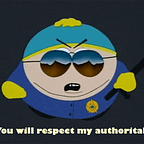The Supreme Court is Restoring Your Online Privacy
A unanimous Court has blocked the government from access to the private data on your cell phone — Now one data provider has reacted by blocking all government access, even with a warrant.
Prior to the landmark Supreme Court case Riley v California published earlier this year, your personal data online and on your phone was not necessarily protected from the government. The government historically has had multiple avenues of access to your data without a warrant. There are subpoenas, pen registers, official request letters, purchase of your data from third party data clearinghouses (which you probably consented to for nearly every app on your phone), search incident to arrest, and the third party doctrine, all of which are examples of how the government could get to your personal data. Until now.
On its face, this case was about what the police can search incident to arrest. Police are entitled to conduct a protective sweep at time of arrest for their safety. But there is nothing unsafe for the police to find on your phone! The Court summarily held that the government needs a search warrant, which articulates the government’s probable cause to believe there is evidence of a crime on your phone before it can get your personal data. The reasoning applied by the Court was not merely because there is no danger. It examined the nature of the container (your phone) and what it holds.
The Court has unanimously agreed that the contents of your phone, and the data sources it exchanges contents with, are more private and sensitive than the contents of your home! In its recognition that ‘digital is different,’ when it comes to privacy, the protections of the 4th Amendment barring unreasonable search and seizure now include your private digital information. The Court also acknowledged, thanks to its adoption of language from the amicus brief by the Electronic Privacy Information Center, that the data on your phone may or may not be on your phone at any given time, may migrate to and from the cloud, and varies from person to person. You don’t have to read between the lines to see the Court aims to protect the private content of your phone; thus, it won’t matter where it is located. Based on the Court’s discussion of the applicability of cloud computing and the cell phone, by proxy the Court has ruled that the government needs a warrant for all personal data that may transact with your phone. That means the cloud — your personal data on Facebook, Google, Dropbox, and the like.
Not everyone agrees that the ruling will apply to the cloud storage companies. But effectively, it already does apply. It is likely that cloud data providers, out of fear of a lawsuit against them by a citizen citing Riley, will now claim warrant protection for data on customers. The government’s challenge to that stance, in court, would seemingly be futile based on the language in the ruling. Nonetheless, a case will eventually come before the court which will rely on Riley, where it directly states personal private information, wherever it is located, requires a warrant.
Apple, in clear response to Riley, has now programmed its new iPhones for total device encryption, with no back door, even for the good guys. Law enforcement calls this process, “going dark.” Even with a warrant, Apple will be unable to assist law enforcement with access to the device.
Unresolved is the legality of the government’s use of the metadata about your personal data, which could still be used to profile your behaviors and preferences. In the Jones case, the dissenting justices believed metadata could still be potentially protected, though, “if the collection, and possibly compilation or analysis, of larger amounts of the same type of data could generate a precise, comprehensive record of a person’s public movements that reflects a wealth of detail about her familial, political, professional, religious, and sexual associations.” Certainly, the government will continue to press for this data without a warrant, and this particular type of data privacy will come back before the court for resolution.
Whether this ruling will encumber the Intelligence Community’s national security authority under the Patriot Act and similar laws is unclear in the short term. Rest assured, however, that in this post-Snowden era, the government is taking note of the unanimous ruling in Riley v. California. Predictably, it will raise the bar even higher on the collection, use, and dissemination of your personal data for intelligence purposes, and will affect the direction and scope of future national security legislation in Congress.
The Information Age is well upon us, and data privacy has been just a business term until now. This case will be recognized as more significant than Terry v. Ohio (when the police can stop and frisk you before a crime is committed), Katz v U.S. (your reasonable expectation of privacy), and U.S. v Jones (the government must have a warrant to track you or your car). This case will forever be considered the first which recognized your constitutionally protected right to privacy in your online life. It will always be seen as a landmark case — since all electronic privacy caselaw from this point forward will be based on Riley v. California.
This case will forever be considered the first which recognized your constitutionally protected right to privacy in your online life. It will always be seen as a landmark case, upon which all electronic privacy caselaw from this point forward will be based.
